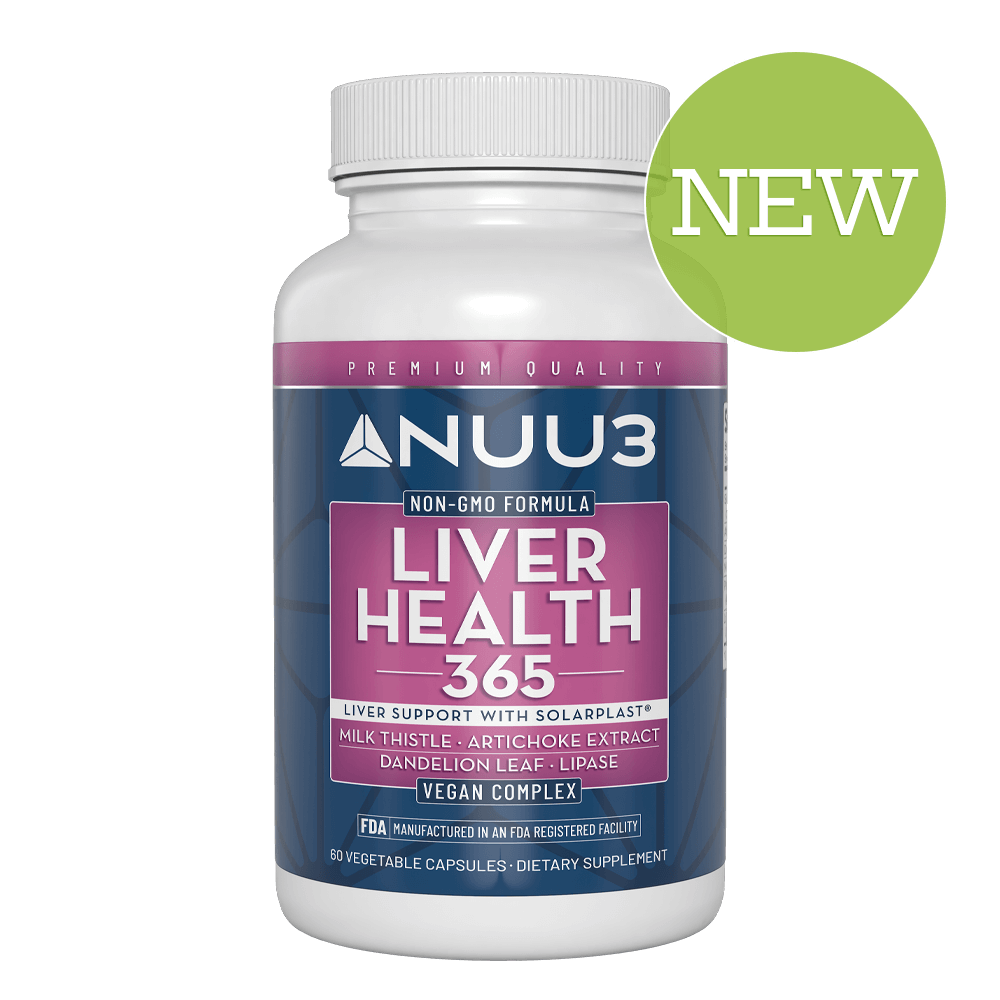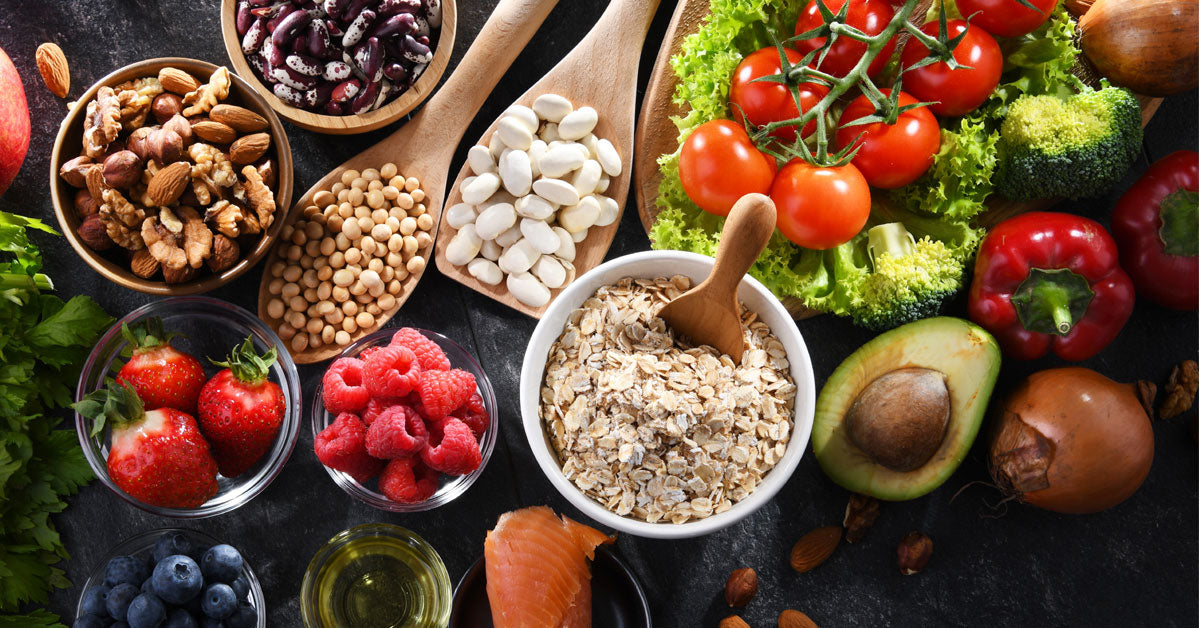When bacteria, viruses, or other pathogens get into your body, your immune system reacts. If this happens, your system sends out white blood cells to fight against those invaders. The amount of white blood cells in your body counts when it comes to knowing how effective your body is at this task. Sometimes, we have a low white blood cell count - which could spell trouble when exposed to some of these particles and microorganisms. Learning how to increase white blood cells isn’t just useful in these cases, but it can also help you maintain a strong immune system. That’s what we’ll be looking at in this article.
What Are White Blood Cells and Their Function?
Let’s start by taking a closer look at what white blood cells are. This can help you understand why it’s necessary to look at ways to increase white blood cells.
Another name for white blood cells is leukocytes. They’re part of your immune system and their main function is to protect your body against diseases. They constantly look for pathogens that are trying to invade your body and cause infection. Similar to red blood cells, leukocytes also flow throughout your body all the time.
Now, one thing to consider is that of all the materials that make up blood, these leukocytes only account for approximately 1%. Yet, they do play an incredibly important role in warding off infections and diseases.
These cells are made by the bone marrow, and once created, are sent to your bloodstream. Some of the white blood cells will continue to circulate in your blood, while others will be stored in your lymph nodes.
Can You Boost Your White Blood Cells With Food!
Many people are looking for ways to increase white blood cells. The good news - it’s possible. However, it’s also important to understand that there are different ways that you can go about this process.
On the one hand, many people use supplements like NUU3 Multivitamin Gummies. They can be a great way to boost your immune system and get more white blood cells flowing throughout your body.
On the other hand, it’s also possible to do this by eating more foods that increase white blood cells. Eating certain foods can help boost your body's immunity by providing the necessary nutrients to produce white blood cells and fight against harmful pathogens.
Understanding the Different Types of White Blood Cells
Before we talk about foods that increase white blood cells, there is an important factor that we should consider and that’s the fact that there are different types of white blood cells [1]in your body. While we understand that they help you fight against illnesses, it is also worth noting their differences.
- Neutrophils: Some of your white blood cells have very specific functions. The neutrophils focus on fungi and bacteria. Not only do they kill these microorganisms, but they also digest them. Neutrophils are also the first line of defense that your body has when it comes to fighting against microbes.
- Lymphocytes: When your body is exposed to bacteria and viruses, lymphocytes help create antibodies. These antibodies are programmed to fight against specific pathogens that you’ve been exposed to.
- Monocytes: Among all of your white blood cells, monocytes live the longest. The main function of these cells is to help in breaking down bacteria in your body.
- Eosinophils: Allergies are common in the general population, and your eosinophils help your body to respond against such reactions. Apart from that, they’re also important for killing off parasites and can help fight against cancer cells.
- Basophils: Think of the basophils as the control center of your immune system. They work directly with your immune system to defend your body whenever there’s an invasion of different microbes and pathogens.
What Foods Increase White Blood Cells?
Now that you have an understanding of the different types of white blood cells and their functions, let’s move on to foods that increase white blood cells. While there are a lot of different foods that can boost your immune system, we’re going to focus on a select food group in this section.
The main goal here is to add these foods to your diet. Over time, they’re going to introduce certain nutrients and other natural nourishments into your body which will make your immune system stronger.
-
Citrus fruits: Oranges, limes, lemons, and many more fruits fall into this category. They are delicious and versatile, offering you access to flavors that range from sweet to sour. Eating enough citrus fruits can help you boost your immune system. You’ve probably been told to eat some oranges when you had the flu before. That’s because oranges are rich in vitamin C. This vitamin also helps in keeping your blood vessels in perfect condition providing a healthy flow of white blood cells throughout your body.
-
Red bell peppers: We often turn our focus to oranges and other citrus fruits when it comes to vitamin C. What you might need to know is that red bell peppers offer more of this vitamin. Apart from vitamin C, they’re also a good source of beta-carotene. This nutrient is essential not only for keeping your eyes and skin healthy but also plays an important role in your immune system. It’s a type of carotenoid that helps increase the number of certain white blood cells in your body.
-
Broccoli: If you enjoy cruciferous vegetables, then broccoli is an excellent addition to your plate because it’s loaded with beta-carotene. This nutrient is really useful for boosting your immune system. Apart from beta-carotene, broccoli also contains selenium and zinc, both of which can help you achieve a strong immune system and are capable of fighting against invading pathogens.
-
Garlic: A great way to add extra flavor to your dishes is to use garlic. This spice does not only make your dishes flavorful but it also helps to increase white blood cells. That’s because garlic has antibacterial and antifungal properties[2], which means it helps your immune system fight against certain types of microorganisms.
-
Sunflower seeds: Many seeds offer health benefits. Sunflower seeds, specifically, are packed with nutrients like zinc and selenium. These seeds are also loaded with a variety of other vitamins that will help you keep your body healthy and your cells functioning the way they should.
-
Vitamin-rich foods: You need to make sure you get all of your essential vitamins every day. Apart from the foods we’ve mentioned above, there are several other options that you can add to your diet if you want to increase your vitamin intake. While vitamin C is essential to a strong immune system, vitamins B6 and B12 are also important if you’re looking for foods that increase white blood cells.
-
Lean protein: Good sources of protein can also be a great addition to your diet when you’re considering improving your immunity. Protein is made up of amino acids, and these molecules play a role in various parts of the immune system. Poultry is a good choice for lean protein, but it’s best to get pieces with most of the fat trimmed off.
-
Green tea: Finally, green tea. Now, when it comes to asking what foods increase white blood cells, you might not think about drinking tea. However, green tea is one of the most beneficial beverages we have in the market. It’s packed with powerful antioxidants - these are compounds that combat free radicals in your body and give your body a chance to ward off diseases more effectively. Enjoy the health benefits of green tea without the taste. NUU3 Green Pura makes green tea convenient and tasty. Try Nuu3 Green Pura now to improve your health.
NUU3 Nature's Superfuel is an excellent nutritional supplement to include in your diet plan if you are unable to eat enough green veggies.
What Foods to Avoid if You Have Low White Blood Cells
Now that you have a better view of what foods help to increase white blood cells, you also have to understand that some foods can be bad for your immune system. Knowing what foods to avoid is also a great way to prevent your white blood cell count from falling too low.
If you already have low white blood cells, then it’s even more important to make sure you avoid these foods[3] and exclude them from your diet. Let’s take a closer look at some important foods you should be avoiding:
- Don’t opt for food that sits in an open bin. Instead, look for wrapped items such as cereals and breads.
- Don’t use raw milk. Avoid dairy products that are made with raw milk as they may be contaminated with harmful bacteria.
- Do not consume your fresh fruits and vegetables unless you are sure that they have been properly washed.
- Don’t use canned foods that are past their sell-by date. Even though canned foods can last long, they should be consumed before they reach their expiration dates.
When you’ve got a low white blood count, it means your body becomes more vulnerable to disease. That’s why you have to take the extra steps to ensure you don’t expose yourself to things that could lead to infections.
Keeping your food healthy is also a great idea. That means avoiding foods that are high in saturated fats, sugars, and a lot of sodium. Always take a close look at the labels of the food you buy. Take note of what the food is made of and its nutritional facts.
Frequently Asked Questions
Does exercise increase white blood cells?
Yes, exercise can be a great way to increase your white blood cell count. Exercising regularly can also boost your immune system, making it easier to fight against disease.
What vitamins should I take to increase white blood cells?
Several vitamins can help with your white blood cell count. This includes vitamins B6 and B12. Folic acid is also a supplement that you can take to increase your white blood cells.
What level of WBC is alarming?
If you get your white blood count tested at a laboratory, you should know what the numbers mean. If your WBC count is lower than 4,000 per micro liter, it’s usually considered to be a cause for concern.
Final Thoughts
Your white blood cells are really important as they help your body fight against pathogens. These pathogens cause infections and diseases. If you have a low WBC count, your body can’t protect itself properly. Understanding the ways to increase white blood cells such as having a healthy diet and taking the right supplements will not only provide you with a healthy white blood cell count but also a strong immune system.
References
1] ↑https://www.urmc.rochester.edu/encyclopedia/content.aspx?ContentID=35&ContentTypeID=160
2] ↑https://www.urmc.rochester.edu/encyclopedia/content.aspx?contenttypeid=19&contentid=Garlic
3] ↑https://myhealth.alberta.ca/Health/aftercareinformation/pages/conditions.aspx?hwid=abq2847










